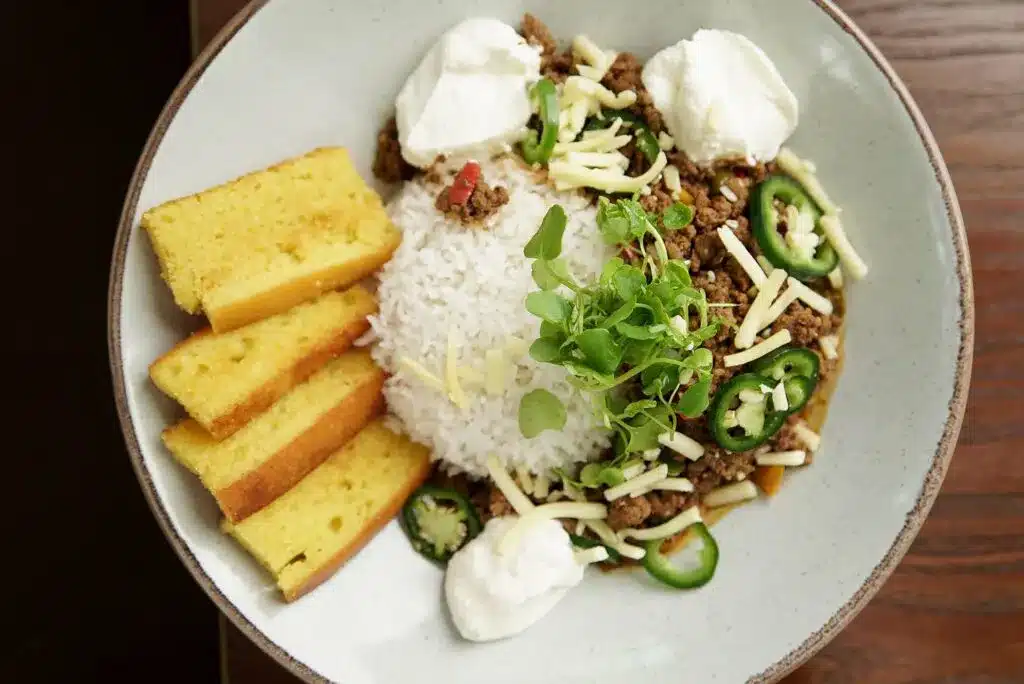The Evolution of American Soul Food
Over the years, American Soul Food has undergone significant changes and adaptations, influenced by various cultural exchanges and historical events. The cuisine has evolved to encompass a wide range of dishes and styles, from traditional recipes to vegan and heart-healthy options.
The Reconstruction Era and the Emergence of Celebratory Soul Food
During the Reconstruction Era (approximately 1865-1910), soul food evolved from merely a diet to a cultural phenomenon. African-American churches were where food became an integral part of celebrations and gatherings, as the community would come together over delicious dishes to reconnect with each other after a long week’s work. These gatherings were immensely important to African-American communities in the South, and the dishes served became a celebratory symbol of the community.
The Great Migration and the Fusion of Cuisines
As African-Americans moved North during the Great Migration, soul food dishes became heavily influenced by other immigrant cultures. This was mainly due to the fact that cities were so heavily segregated that many non-Anglo-Saxon immigrants lived together in separate portions of the city in close proximity to each other. It was here that African-American cuisine adopted elements from Italian, Chinese, and Latin-American cuisines, such as spaghetti, fried rice, pizza, chilli, macaroni, and more.
The Civil Rights Movement and the Coining of “Soul Food”
It was only in the 1960s that the term “
soul food” was first coined to reference the traditional African-American cuisine that originated in the South. The Civil Rights Movement illuminated the immense legacy that African-American cuisine had made on Southern culinary traditions, and “soul food” was a mark of the traditional culture that had become such an integral part of many Southern kitchens.
The Key Ingredients of American Soul Food
While there is a vast array of dishes and diverse flavours in American Soul Food, there are some key ingredients that serve as the foundation of this unique cuisine. These ingredients not only contribute to the flavours and textures of the dishes but also have deep historical and cultural connections.
Rice
Rice is an essential ingredient in many soul food dishes, with its roots tracing back to the African continent. It was brought to the Americas during the slave trade and was grown by enslaved Africans as a food source to sustain them through long days of hard labour. Rice-based dishes like jambalaya and Hoppin’ John bear a strong resemblance to African dishes like Jollof and waakye, showcasing the connection between the two culinary worlds.
Okra
Okra, a versatile vegetable with origins in Ethiopia, has become a cornerstone of Southern American cooking. It was brought to the Americas during the 18th century and has since been used in various forms, such as a soup thickener or as a main ingredient in dishes like gumbo. The word “gumbo” is derived from “ki ngombo”, the Bantu word for Okra, further illustrating the connection between American Soul Food and African cuisine.
Pork
Pork has been the choice of meat in the South for centuries, with enslaved Africans often being given the least desirable cuts of meat, such as the head, ribs, feet, or internal organs. To mask the poor flavour of these cuts, they drew from their traditional African cooking techniques and used a combination of seasonings, such as hot red peppers and vinegar. These flavours have since served as the base of many different barbecue sauces that are still used in the South today.
Greens
Boiled leafy greens are a staple in American Soul Food, with collard greens being the most popular variety. The technique of boiling greens has a clear link to traditional African methods of eating, as many countries across the continent have similar dishes, like Ethiopia’s gomen wat and Ghana’s kontomire stew.
The Impact of American Soul Food on the Culinary Landscape
American Soul Food has had a lasting impact on the culinary landscape, as its influence can be seen in various aspects of food culture. From its presence in popular media to its impact on the restaurant industry, American Soul Food has left an indelible mark on the world of food.
Soul Food in Popular Media
Soul food has made its way into popular media, with movies, television shows, and music often showcasing the cuisine and its cultural significance. Films like “Soul Food” and “The Help” have brought attention to the importance of soul food in African American communities, while television shows like “The Soul Man” and “Down Home with the Neelys” have showcased the cuisine in a more lighthearted and entertaining manner.
The Restaurant Industry and Soul Food
Soul food restaurants have become a fixture in the American dining scene, with establishments like
Sylvia’s in New York City,
Dooky Chase’s in New Orleans,
Busy Bee Cafe in Atlanta and here at
Americana London serving up delicious soul food dishes to countless patrons. These restaurants not only offer a taste of the cuisine but also preserve the traditions and history of soul food for future generations.


